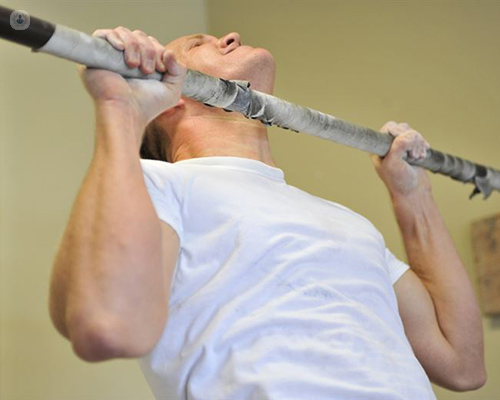


What is sarcopenia?
Sarcopenia is a loss of both coordination and muscle mass, which can result in poor balance, difficulty walking, and finding daily activities become more difficult to perform. Sarcopenia can lead to disability and lack of independence, as well as increasing the risk of falls, fractures or injuries. In addition to a loss of muscle mass, there is an increase in fat tissue which increases the risk of hypertension, obesity or diabetes.
What are the symptoms?
Symptoms of sarcopenia are low muscle mass or gradual loss, overall weakness, and lower stamina, which affects physical activity levels. Lower physical activity levels also further contribute to muscle shrinkage.
Causes of sarcopenia
The main cause of sarcopenia is the passage of time and ageing, as the motor neurons in the body gradually die and no longer communicate commands to the brain. Motor neurons dying causes muscle fibre to deteriorate, in a process called atrophy. Sarcopenia is usually a result of this motor unit restructure, along with protein deficiency, and changes in hormone levels.
Can it be prevented?
The practice of physical activity and an active lifestyle can prevent and delay the onset and progression of sarcopenia. People who maintain an active life and eat a balanced, healthy diet with the right amount of protein can delay the onset.
What is the treatment?
There is no specific treatment for sarcopenia, but some methods are used to delay its appearance:
- Treatment with testosterone: in patients with low levels of testosterone in the blood, this treatment is used since testosterone is related to the presence of muscle mass and strength in the legs.
- Treatment with growth hormone: this method can increase muscle mass and strength in people with hypopituitarism.
- Nutritional treatment: diets rich in proteins and other specific nutrients provide strength and decrease the risk of sarcopenia progressing.
- Physical exercise: training and physical exercise is key to counteract sarcopenia, improving strength, endurance and balance. It is necessary for the patient to carry out a training routine of several weeks, which is very effective in increasing muscle mass and independence.
Patients may also be advised to take supplements such as vitamin D, and limit alcohol consumption along with quitting smoking, if necessary, as low vitamin D levels and smoking/drinking are connected to sarcopenia and its development.
